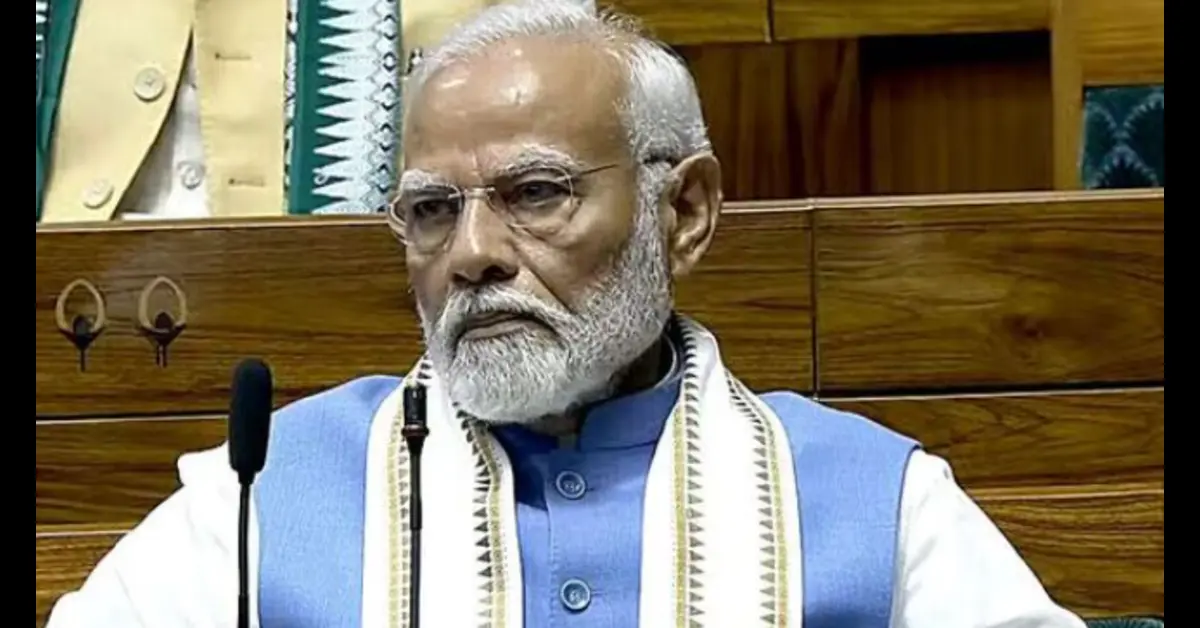Table of Contents
Introduction
In a political landscape as dynamic as India’s, parliamentary speeches often set the stage for fiery debates and critical analyses. Prime Minister Narendra Modi’s recent two-hour-long speech in the Lok Sabha has garnered significant attention. Not only did it cover a plethora of issues, but it also elicited a robust response from the opposition, particularly from Congress leader Rahul Gandhi. The phrase “Rahul Gandhi’s arrow hit the right spot” captures the essence of the opposition’s reaction, suggesting that Gandhi’s critique resonated strongly amidst Modi’s extensive address.
PM Modi’s Speech: A Summary
Prime Minister Narendra Modi’s speech in the Lok Sabha was comprehensive, touching upon various national concerns, policy directions, and achievements of his administration. Modi emphasized economic growth, infrastructural development, and social welfare schemes. He also highlighted India’s growing international stature and the government’s efforts to tackle pressing issues like unemployment and inflation.
Economic Growth and Development
Modi’s speech underscored the government’s economic achievements, including GDP growth, foreign direct investment inflows, and digital transformation initiatives. He spoke about the Make in India campaign, the Atmanirbhar Bharat (Self-Reliant India) initiative, and various infrastructure projects aimed at boosting the economy.
Social Welfare Schemes
The Prime Minister detailed the progress of social welfare schemes such as the Pradhan Mantri Awas Yojana, Swachh Bharat Abhiyan, and Ayushman Bharat. He claimed these initiatives have significantly improved the quality of life for millions of Indians, particularly in rural areas.
International Stature
Modi also pointed to India’s rising global influence, citing improved diplomatic relations, leadership in international forums, and strategic partnerships. He stressed how India’s voice is now heard more prominently on the global stage.
Rahul Gandhi’s Response
Rahul Gandhi, a prominent figure in the opposition, responded to Modi’s speech with sharp criticism. His rebuttal was pointed, focusing on areas where he believed the government had fallen short. Gandhi’s remarks were aimed at contrasting the Prime Minister’s optimistic narrative with a more critical view of the current administration’s policies and their impact on the common man.
Economic Critique
Gandhi questioned the effectiveness of Modi’s economic policies, arguing that the benefits touted by the Prime Minister had not reached the grassroots. Rahul Gandhi He pointed to rising unemployment rates, farmer distress, and economic disparities as evidence that the economic growth mentioned in the speech was not inclusive.
Social Issues
On social welfare, Gandhi highlighted areas where he felt the government had not delivered. He mentioned issues in healthcare, education, and rural development, suggesting that the ground realities were far removed from the claims made by the Prime Minister.
Democratic Values and Governance
Gandhi also raised concerns about democratic values and governance. He criticized what he described as a centralization of power and a weakening of democratic institutions under Modi’s leadership. This part of his response struck a chord with many in the opposition who share concerns about the erosion of institutional autonomy and checks and balances.
Opposition Reactions
Rahul Gandhi’s critique was met with widespread approval among opposition parties. Leaders from various factions echoed his sentiments, reinforcing the narrative that Modi’s government has failed to address critical issues effectively. Rahul Gandhi The opposition’s unified response indicates a strategic alignment aimed at challenging the ruling party’s narrative ahead of upcoming elections.
Key Opposition Voices
Mamata Banerjee, Trinamool Congress: Banerjee praised Gandhi’s sharp critique, stating that it highlighted the disconnect between the government’s claims and the public’s experience. She reiterated her own concerns about economic inequality and the centralization of power.
Akhilesh Yadav, Samajwadi Party: Yadav supported Gandhi’s points on unemployment and farmer distress, emphasizing that rural India has not benefited from the economic policies promoted by the Modi government.
Sitaram Yechury, CPI(M): Yechury focused on the issues of democratic governance raised by Gandhi, arguing that the Modi administration has undermined democratic norms and institutions.
Public and Media Reactions
The public and media reactions to this exchange have been mixed, reflecting the polarized nature of Indian politics. Supporters of the government praised Modi’s comprehensive address, while critics lauded Gandhi for his pointed and articulate rebuttal. Rahul Gandhi Media coverage has highlighted the stark contrasts between the two leaders’ perspectives, providing a platform for public debate.
Analysis: The Political Implications
The exchange between Modi and Gandhi is more than just a clash of ideologies; it has significant political implications. As India approaches critical state and national elections, such debates shape public opinion and influence voter sentiment. Gandhi’s ability to effectively counter Modi’s narrative could bolster the opposition’s chances, while Modi’s supporters hope that his track record and vision will resonate with voters.
Conclusion
Rahul Gandhi’s response to PM Modi’s two-hour-long speech in the Lok Sabha has stirred a robust political discourse. His pointed critique, particularly on economic and social issues, has found resonance among opposition leaders and segments of the public. As the political landscape continues to evolve, these exchanges underscore the vibrant and contentious nature of Indian democracy.
Mahua Moitra Addresses PM Modi
FAQs
What were the main points of PM Modi’s speech in the Lok Sabha? PM Modi focused on economic growth, social welfare schemes, and India’s rising international stature.
How did Rahul Gandhi respond to Modi’s speech? Rahul Gandhi criticized the government’s economic policies, social welfare achievements, and approach to democratic governance.
What was the opposition’s reaction to Gandhi’s critique? The opposition largely supported Gandhi’s critique, reinforcing concerns about economic inequality and centralization of power.
What are the political implications of this exchange? The exchange could influence voter sentiment and shape public opinion ahead of upcoming elections.
How did the public and media react to this political exchange? Reactions were mixed, with supporters praising Modi’s vision and critics lauding Gandhi’s pointed rebuttal.
What issues did Gandhi highlight in his critique? Gandhi highlighted unemployment, farmer distress, economic disparities, healthcare, education, and democratic governance.
